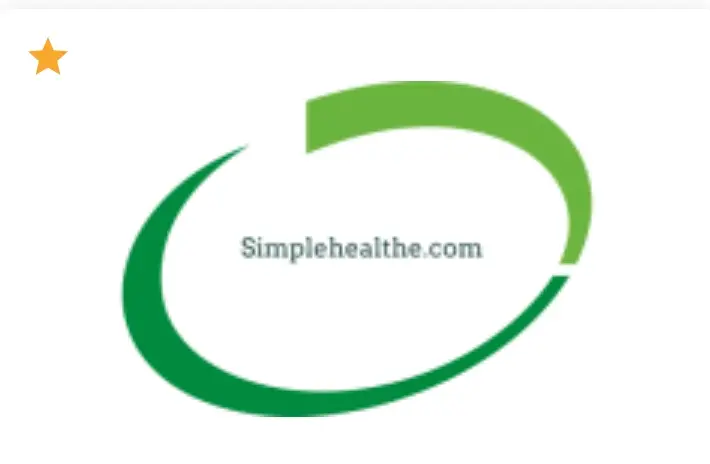BLOG/insurance explained and why you need to know it’s importance to your health
“Health Insurance Basics: How to Choose the Right Plan and Understand Coverage Options” “Looking to understand health insurance basics? Discover essential insights on premiums, deductibles, and how to choose the right plan. Simplify your health coverage decisions with this easy-to-follow guide to protecting your health and finances.” Introduction to Health Insurance Health insurance plays a…
“Health Insurance Basics: How to Choose the Right Plan and Understand Coverage Options”
“Looking to understand health insurance basics? Discover essential insights on premiums, deductibles, and how to choose the right plan. Simplify your health coverage decisions with this easy-to-follow guide to protecting your health and finances.”
- Table of Contents:1. Introduction to Health InsuranceTable of Contents: 1. Introduction to Health Insurance 2. Why Health Insurance Matters 3. Types of Health Insurance Plans 4. Key Components of Health Insurance Plans 5. Common Health Insurance Terms Explained 6. How Health Insurance Premiums are Calculated 7. Factors to Consider When Choosing a Health Plan 8. Health Insurance and Preventive Care 9. What is Covered by Health Insurance? 10. Health Insurance Costs: Premiums, Deductibles, and Out-of-Pocket Limits 11. Tips for Lowering Your Health Insurance Costs 12. How to Choose the Best Health Insurance Plan for Your Needs 13. Filing Health Insurance Claims: What to Know 14. Health Insurance for Special Populations (Elderly, Children, Disabled, etc.) 15. Common Health Insurance Mistakes to Avoid 16. Frequently Asked Questions (FAQs) about Health Insurance 17. Conclusion and Final Thoughts
- Why Health Insurance Matters to you and why it's important.
- Types of Health Insurance Plans and their relevance.
- Key Components of Health Insurance Plans you need to know.
- Common Health Insurance Terms Explained here.
- How Health Insurance Premiums are Calculated
- Factors to Consider When Choosing a Health Plan
- Health Insurance and Preventive Care
- What is Covered by Health Insurance?
- Health Insurance Costs: Premiums, Deductibles, and Out-of-Pocket Limits
- Tips for Lowering Your Health Insurance Costs
- Filing Health Insurance Claims: What to Know
- Health Insurance for Special Populations
- Common Health Insurance Mistakes to Avoid
- Frequently Asked Questions (FAQs) about Health Insurance
- Conclusion and Final Thoughts
Introduction to Health Insurance
Health insurance plays a crucial role in providing access to healthcare, covering medical costs, and protecting against high unexpected expenses. This guide will walk you through everything you need to know about health insurance, including types, coverage, costs, and how to make the right choice.
Why Health Insurance Matters to you and why it’s important.
Having health insurance offers peace of mind and financial protection. It ensures you have access to medical care when needed and reduces the financial burden of healthcare expenses, which can be substantial without insurance.
Types of Health Insurance Plans and their relevance.
Understanding the different types of health insurance plans is essential when choosing coverage. The main types include:
Health Maintenance Organization (HMO): Requires using a network of doctors and getting referrals for specialists.
Preferred Provider Organization (PPO): Offers flexibility to see in-network or out-of-network providers, usually at higher costs.
Exclusive Provider Organization (EPO): Requires using a network but doesn’t require referrals.
Point of Service (POS): Blends features of HMO and PPO, allowing for in-network or out-of-network care with referrals.Each type has its own advantages, and the right choice depends on your healthcare needs and preferences.
Key Components of Health Insurance Plans you need to know.
Health insurance plans typically include:
Premium: Monthly payment for maintaining coverage.
Deductible: Amount you pay out-of-pocket before insurance kicks in.
Copayment: Fixed cost for specific services (e.g., doctor’s visits).
Coinsurance: Percentage of costs shared after deductible is met.Out-of-Pocket Maximum: Cap on how much you pay annually.
Common Health Insurance Terms Explained here.
Health insurance terminology can be confusing. Here are some commonly used terms explained:
Formulary: List of covered medications.
Preauthorization: Approval for a specific service or medication.
In-network vs. Out-of-network: Providers contracted with your insurance or not.
Preventive Care: Services to prevent illness, usually covered fully.
How Health Insurance Premiums are Calculated
Health insurance premiums are determined based on:
Age: Older adults typically face higher premiums.
Location: Cost of healthcare varies by area.
Type of Plan: Coverage options and flexibility impact cost.
Health History: Some factors may influence premiums.
Insurance companies calculate premiums based on expected risk and expenses.
Factors to Consider When Choosing a Health Plan
When selecting a health plan, consider:
Your Healthcare Needs: Frequency of doctor visits, specialists, medications.
Budget: Premium, deductible, and out-of-pocket costs.
Family Members: Dependents and their healthcare needs.
Network Providers: Whether your preferred providers are in-network.
Health Insurance and Preventive Care
Many health plans cover preventive care, which includes services like vaccines, screenings, and check-ups. Preventive care is essential for early detection and keeping healthcare costs down in the long run.

What is Covered by Health Insurance?
Health insurance typically covers:
Hospitalization
Emergency Services
Prescription Drugs
Mental Health Services
Maternity and Newborn Care
Specific coverage varies, so review your plan’s details.
Health Insurance Costs: Premiums, Deductibles, and Out-of-Pocket Limits
Health insurance costs include:
Premiums: Regular monthly payments.
Deductibles: Out-of-pocket expenses before coverage starts.
Out-of-Pocket Limits: Maximum you pay annually for covered services.
Understanding these costs helps you manage your health expenses more effectively.
Tips for Lowering Your Health Insurance Costs
Choose Higher Deductibles: Lower premiums often come with higher deductibles.
Use Preventive Services: Covered at no cost under many plans.
Stay In-network: Using in-network providers reduces costs.
Check for Subsidies: Financial assistance may be available.
How to Choose the Best Health Insurance Plan for Your Needs
Evaluate your healthcare needs, budget, and provider network when choosing a plan. Consider using online comparison tools to review plan options and costs.
Filing Health Insurance Claims: What to Know
Most claims are handled automatically if using in-network providers. However, understanding the claim process, including required documentation, can help avoid issues.
Health Insurance for Special Populations
Special health insurance options are available for groups like seniors, children, and individuals with disabilities. These options cater to unique health needs and often have specific benefits.
Common Health Insurance Mistakes to Avoid
Ignoring Coverage Details: Always read the plan’s summary of benefits.
Skipping Preventive Care: These services are usually covered fully.
Choosing Based on Premium Only: Consider total costs, including deductibles and copays.
Frequently Asked Questions (FAQs) about Health Insurance
What’s the best health plan if I see a doctor frequently?
it depends on what situation you are in and the amount of money you prepared for the plan. It’s always better to get clear advice from the insurance personnel working on you.If you see a doctor frequently, a plan with a higher premium and lower deductible, such as a Preferred Provider Organization (PPO) or Health Maintenance Organization (HMO) plan, might be a good choice.
These plans often have lower out-of-pocket costs for each visit, making them cost-effective for people who need regular medical care. A PPO provides flexibility to see in-network and out-of-network doctors, while an HMO requires you to choose in-network providers but typically offers lower costs.
Are prescriptions always covered?
Prescription coverage varies by plan. Many health insurance plans include a prescription drug benefit, but the specific medications covered depend on your plan’s formulary (approved drug list). Most formularies categorize drugs into tiers, with lower-cost generics in the lowest tier and more expensive, brand-name drugs in higher tiers. Be sure to review your plan’s drug coverage and costs, as some plans may cover only generic drugs or require higher copayments for certain medications. If you rely on specific prescriptions, checking for those medications in your plan’s formulary is recommended.
How does preventive care work in my plan
Most health insurance plans cover preventive care at no extra cost, meaning you don’t need to meet your deductible or pay a copay for these services. Preventive care includes routine check-ups, vaccinations, screenings, and counseling that help detect or prevent health issues early. By covering these services, insurers aim to keep you healthier, which can lower medical costs over time. Check your plan’s benefits to see which preventive services are included, as they may vary based on age and risk factors.
Conclusion and Final Thoughts
Choosing the right health insurance plan is a crucial decision that impacts your financial and physical well-being. By understanding the fundamentals of health insurance and assessing your personal needs, you can make an informed choice and gain the peace of mind that comes with quality coverage.
165 responses to “BLOG/insurance explained and why you need to know it’s importance to your health”
-
http://medimexicorx.com/# MediMexicoRx
-
MediMexicoRx: MediMexicoRx – sildenafil mexico online
-
http://expresscarerx.org/# Tadacip
-
Fulvicin reliable rx pharmacy reviews freedom pharmacy prometrium
-
ExpressCareRx: legitimate online pharmacy uk – cialis best online pharmacy
-
http://indiamedshub.com/# legitimate online pharmacies india
-
itstitle
excerptsa
-
prix canadiens kamagra
generique kamagra distribuer ces
-
how to order enclomiphene generic uk buy
cheapest buy enclomiphene cheap now
-
online order androxal uk order
online androxal cod pharmacy
-
buy dutasteride generic india
online order dutasteride australia to buy
-
discount flexeril cyclobenzaprine price new zealand
cheap flexeril cyclobenzaprine purchase uk
-
purchase fildena real price
how to order fildena cheap canada
-
order gabapentin generic ingredients
comprar gabapentin sin receta en usa
-
cheapest buy itraconazole generic vs brand name
ordering itraconazole cheap drugs


Leave a Reply